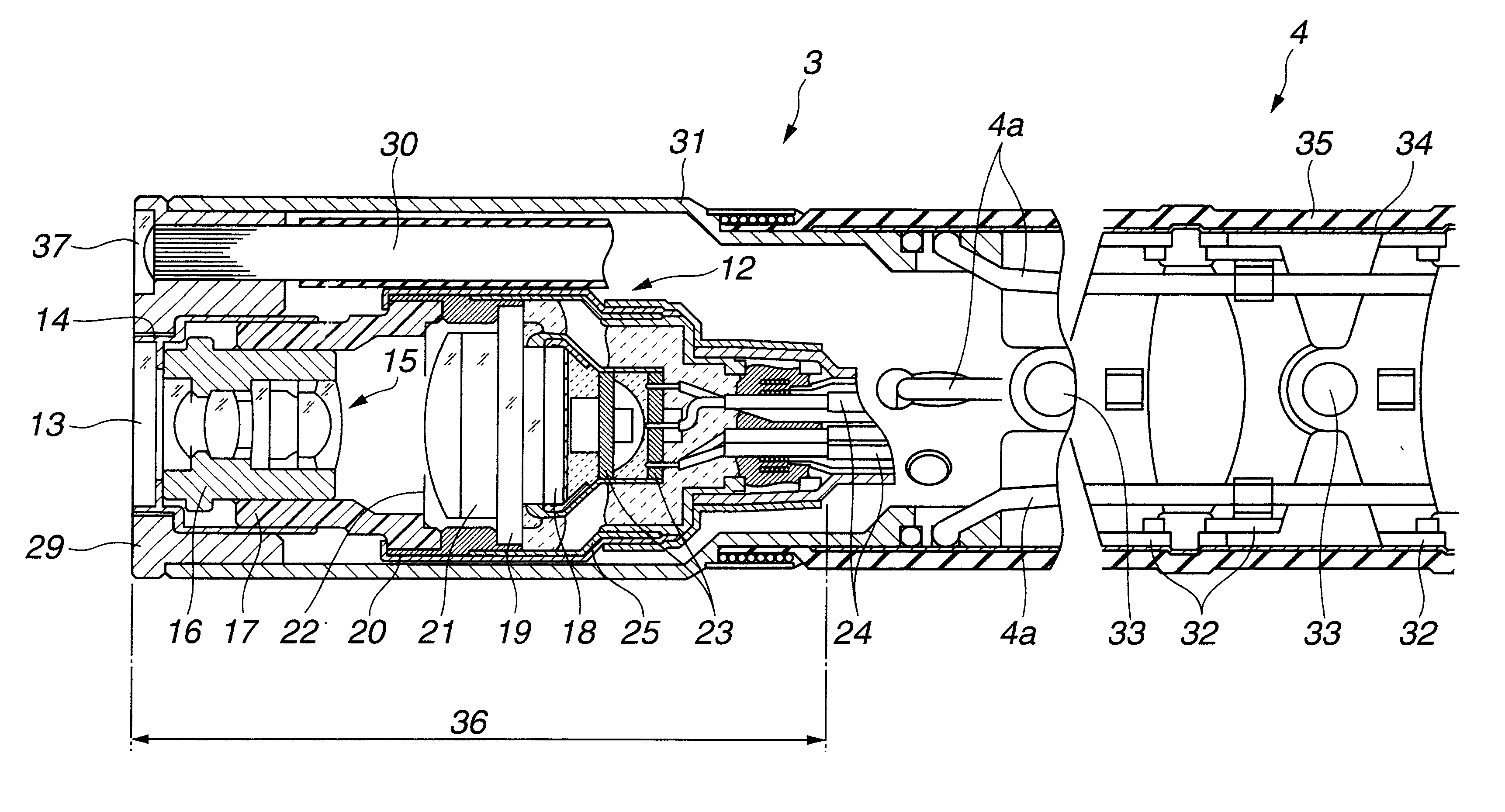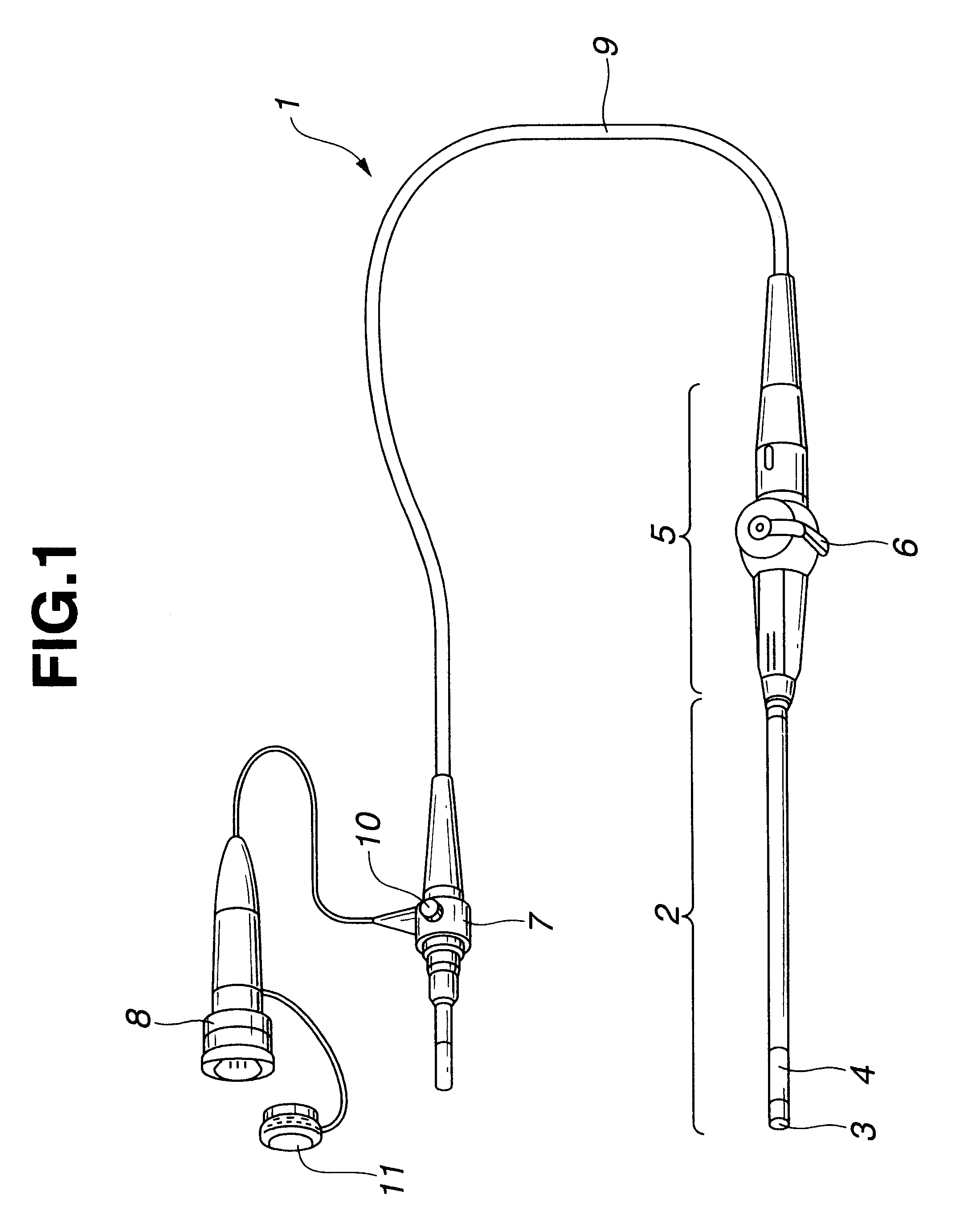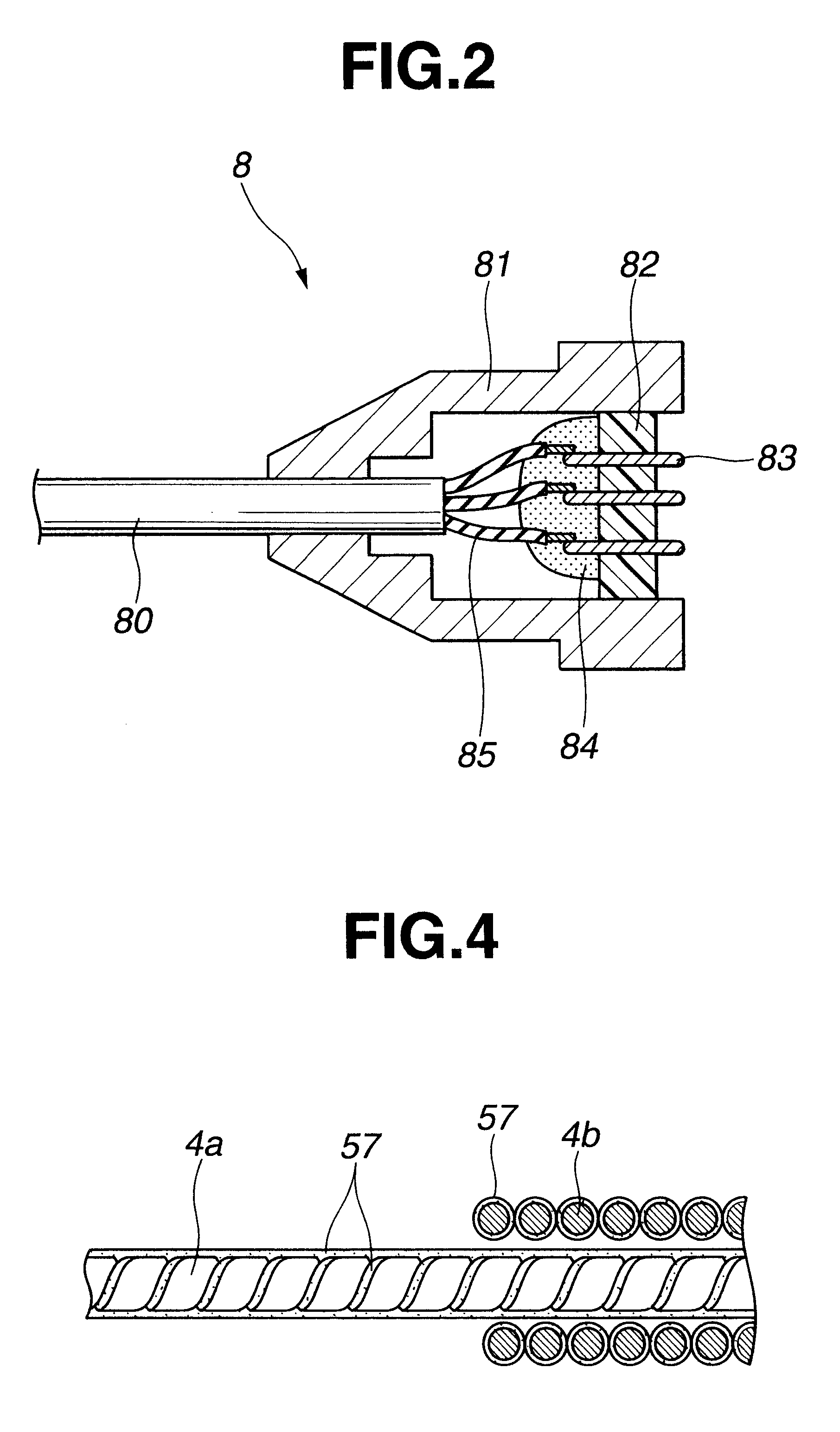Endoscope having resistance to high-temperature and high-pressure steam
a technology of endoscope and high-temperature steam, which is applied in the field of endoscope, can solve the problems of high running cost, cumbersome operation of disinfection and sterilization, and tool cannot be used immediately
- Summary
- Abstract
- Description
- Claims
- Application Information
AI Technical Summary
Benefits of technology
Problems solved by technology
Method used
Image
Examples
first embodiment
the invention will be explained below with reference to FIGS. 1 through 13.
As shown in FIG. 1, and endoscope has a soft insert section 2, which is to be inserted into a body, at the front-end part of the main body of the endoscope 1. The insert section 2 comprises a front-end section 3 and a bend section 4. There is also provided a control section 5 at the basal end portion of the insert section 2. The control section 5 comprises an angle lever 6 for remotely controlling the bend section 4.
The endoscope 1 also comprises a connector 7, for connecting the endoscope 1 to a light source unit (not shown), and a CCU connector 8, for connecting the endoscope 1 to a video system center. The connector 7, the CCU connector 8 and the control section 5 are connected via a flexible cord 9.
The connector 7 is provided with a switch valve 10 which communicates with the internal space of the endoscope 1 and can be opened and closed by an adapter (not shown). The switch valve 10 has a check valve str...
second embodiment
the invention will be explained below with reference to FIGS. 14 and 15.
FIG. 14 shows a structural example of a image pickup unit 40 having no insulating frame.
The image pickup unit 40 comprises a solid image pickup device 41, a substrate 42 on which electronic parts are mounted, a cable 43 electrically connected to the solid image pickup device 41 via the substrate 42, an objective lens group 44 disposed in front of the solid image pickup device 41, a lens frame 45 to which the objective lens group 44 is assembled, a lens frame supporting frame 46, which is a metallic optical unit supporting frame for holding the lens frame 45 by positioning in the direction of optical axis, a sapphire cover glass 47 disposed in front of the objective lens group 44, and a metallic front-end cover frame 48 hermetically joining the cover glass 47.
The cover glass 47 is hermetically joined with the metallic front-end cover frame 48 by means of brazing or soldering, thus composing a front-end hermetic o...
third embodiment
the invention will be explained below with reference to FIGS. 16 through 18.
According to the present embodiment, an optical window of a front-end hermetic optical covering member 70 is formed of a concave lens 71 which is made of sapphire or a high-heat resistant and high-steam resistant optical member. The structure other than that is similar to the second embodiment. The same members are denoted by the same reference numerals and an explanation thereof will be omitted here.
According to the assembly method of the endoscope of the present embodiment, a lens frame 73, in which the objective lens group 72, except the concave lens 71, which is the optical window, is assembled, is moved in the direction of the optical axis within the lens frame supporting frame 46 to control the focus. Then, the lens frame 73 is adhered and fixed to the lens frame supporting frame 46 at the position where the objective lens group 72 is in focus. The above-mentioned focus control work may be carried out ...
PUM
 Login to View More
Login to View More Abstract
Description
Claims
Application Information
 Login to View More
Login to View More - R&D
- Intellectual Property
- Life Sciences
- Materials
- Tech Scout
- Unparalleled Data Quality
- Higher Quality Content
- 60% Fewer Hallucinations
Browse by: Latest US Patents, China's latest patents, Technical Efficacy Thesaurus, Application Domain, Technology Topic, Popular Technical Reports.
© 2025 PatSnap. All rights reserved.Legal|Privacy policy|Modern Slavery Act Transparency Statement|Sitemap|About US| Contact US: help@patsnap.com



